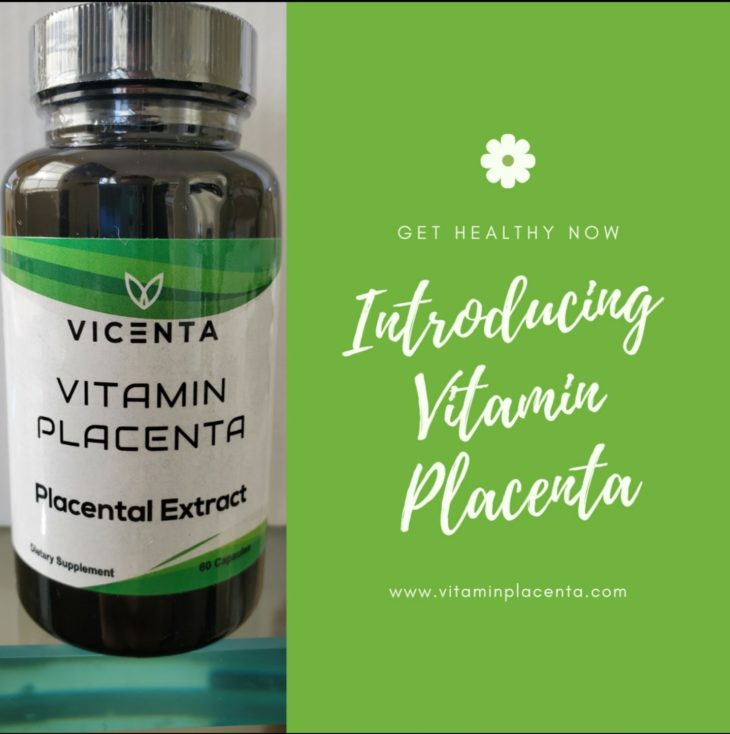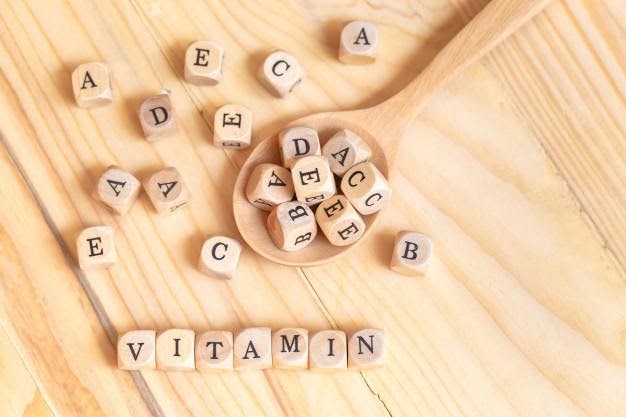For certain people, particularly the elderly, supplementing the diet with additional vitamins and minerals can have health impacts; however, the majority will not benefit. People with dietary imbalances may include those on restrictive diets and those who cannot or will not eat a nutritious diet. Pregnant women and elderly adults have different nutritional needs than other adults, and a multivitamin may be indicated by a physician. Generally, medical advice is to avoid multivitamins during pregnancy, particularly those containing vitamin A, unless they are recommended by a health care professional. However, the NHS recommends 10μg of Vitamin D per day throughout the pregnancy and whilst breastfeeding, as well as 400μg of folic acid during the first trimester . Some women may need to take iron, vitamin C, or calcium supplements during pregnancy, but only on the advice of a doctor.
Including lutein and zeaxanthin supplements in with a multivitamin does not improve progression of macular degeneration. The need for high-quality studies looking at the safety of taking multivitamins has been highlighted. This product—which contains important vitamins and minerals like choline, inositol, lycopene, vitamin D, lutein, and zeaxanthin—is designed to support healthy cognitive function, cellular health, and eye health.
In addition to these potent nutrients, one serving contains over 100% of the recommended daily intake of folate in its most bioavailable form. Do note, though, that this supplement doesn't contain iron, so vegans, vegetarians, or pregnant women might need to choose an additional supplement. Vitamin C or L-ascorbic acid is an indispensable nutrient for humans.
They concluded that intake of vitamin C from food had no association with mortality outcomes. The consumption of a daily multivitamin among people all over the world is dramatically increasing in recent years. Most of the people believe that if vitamins are not effective, at least they are safe. However, the long term health consequences of vitamins consumption are unknown. This study aimed to assess the side effects and possible harmful and detrimental properties of vitamins and to discuss whether vitamins can be used as safe health products or dietary supplements.
We performed a MEDLINE/PubMed, EMBASE, Scopus and Google Scholar search and assessed reference lists of the included studies which were published from 1993 through 2015. This study aimed to assess the side effects and possible harmful and detrimental properties of vitamins and to discuss whether vitamins can be used as safe health products or dietary supplements. We performed a MEDLINE/PubMed, EMBASE, Scopus and Google Scholar search and assessed reference lists of the included studies which were published from 1993 through 2015. We have also shown recommended dietary allowance /adequate intake and tolerable upper intake level of these vitamins in Table 1. But, children who may avoid certain food groups altogether or tend to be very picky are at a much higher risk for missing out on key nutrients to support growth and development.
According to the National Center of Health Statistics at the CDC, approximately one-third of children in the United States are consuming vitamin and mineral supplements, most often in the form of a multivitamin. The CDC also notes that dietary supplements do contribute positively to overall total nutrient intake for children that need them most. The eight B vitamins are crucial to the production of energy and red blood cells. A 2016 review of studies said they're "absolutely essential for every aspect of brain function." And they have a number of full-body benefits. "Biotin, or B7, is a B vitamin that helps keep hair healthy." In July 2019, another meta-analysis of 24 interventions in 277 trials was conducted and published in Annals of Internal Medicine, including a total of almost 1,000,000 participants.
The study generally concluded that the vast majority of multivitamins had no significant effect on survival or heart attack risk. The study found a significant effect on heart health in a low-salt diet, and a small effect due to omega-3 and folic acid supplements. This analysis supports the results of two early 2018 studies that found no conclusive benefits from multivitamins for healthy adults. Women versus men, older adults versus younger adults, non-Hispanic whites versus non-Hispanic blacks, and those with higher education levels versus lower education levels were more likely to take multivitamins.
Individuals who use dietary supplements generally report higher dietary nutrient intakes and healthier diets. Additionally, adults with a history of prostate and breast cancers were more likely to use dietary and multivitamin supplements. If you're looking for a great multivitamin for kids that shows up on your doorstep when you need it to, Ritual's Essential for Kids 4+ is an excellent option. The subscription-based gummy multivitamin is formulated with key nutrients to help fill nutrition gaps in order to support growth and development. Ritual has covered their bases with zinc, vitamin D3, and vitamin C for immune support; choline and omega-3 fatty acids for brain health; vitamins D and K for growing bones and a fiber/prebiotic blend to boost digestion. Age-related declines in mitochondrial function and increases in mitochondrial oxidant production are thought to be important contributors to the adverse effects of aging.
What Vitamins Should An 18 Year Old Female Take Tissue L-carnitine levels have been found to decline with age in humans and animals . Interestingly, co-supplementation of ALCAR and lipoic acid resulted in even greater improvements than either compound administered alone. Improvements in mitochondrial enzyme and respiratory chain activities were also observed (26-33). While these findings are very exciting, it is important to realize that these studies used relatively high doses (100 to 300 mg/kg body weight/day) of the compounds and only for a short time .
It is not yet known whether taking relatively high doses of these two naturally occurring substances will benefit rats in the long-term or will have similar effects in humans. Clinical trials in humans are planned, but it will be several years before the results are available. If you choose to take carnitine supplements, the Linus Pauling Institute recommends acetyl-L-carnitine at a daily dose of 500 to 1,000 mg. Some experts in nutrition and aging feel that the RDA of riboflavin (1.3 mg/day for men and 1.1 mg/day for women) leaves little margin for error in people over 50 years of age . A study of independently living people between 65 and 90 years of age found that almost 25% consumed less than the recommended riboflavin intake, and 10% had biochemical evidence of deficiency . Epidemiological studies of cataract prevalence indicate that riboflavin intakes of 1.6 to 2.2 mg/day may reduce the risk of developing age-related cataracts.
Individuals whose diets may not supply adequate riboflavin, especially those over 50 years of age, should consider taking a multivitamin/mineral supplement, which generally provides at least 1.7 mg/day of riboflavin. The Linus Pauling Institute recommends that adults take a 400 μg supplement of folic acid daily, in addition to folate and folic acid consumed in the diet. A daily multivitamin/mineral supplement, containing 100% of the Daily Value for folic acid provides 400 μg of folic acid.
The human body requires 13 vitamins and at least 16 minerals essential to your health.However, while all adults need a variety of key vitamins and minerals every day, men and women have different requirements. For instance, women of reproductive age require more iron than men of the same age, so women's supplements typically include iron and men's supplements don't. If you're asking yourself, "What vitamins should I take daily for a man? " keep in mind that it varies depending on your age and lifestyle. There are exceptions to this rule however, which is why consulting with your doctor is always a smart choice.
Dr. Olulade explains that, for example, lifestyle diets such as veganism and vegetarianism may make it difficult to maintain an adequate Vitamin B12 level. There are also vitamins not easily found in food sources, like Vitamin D, which make it a common deficiency in women, especially those with darker skin or those who don't spend much time in the sun. Iron, folic acid, and calcium are three other supplements that may be helpful depending on your lifestyle, health, and age. However, only a doctor can tell you if you have a true deficiency. Folate or vitamin B9 is another nutrient that many women don't get enough of in their diets. Folate can greatly reduce the chance of neurological birth defects when taken before conception and during the first few weeks of pregnancy.
Folate can also lower a woman's risk for heart disease and certain types of cancer, so even if you're not planning on getting pregnant , it's an essential nutrient for every woman of childbearing age. In later life, folate can help your body manufacture estrogen during menopause. Among other things, you need calcium to build healthy bones and teeth, keep them strong as you age, regulate the heart's rhythm, and ensure your nervous system functions properly.
Calcium deficiency can lead to, or exacerbate, mood problems such as irritability, anxiety, depression, and sleep difficulties. If you don't get enough calcium in your diet, your body will take calcium from your bones to ensure normal cell function, which can lead to weakened bones or osteoporosis. Women are at a greater risk than men of developing osteoporosis, so it's important to get plenty of calcium, in combination with magnesium and vitamin D, to support your bone health. While calorie requirements decrease, suggested intakes for certain vitamins and minerals also change. Here are the important nutrients women can get from food, multivitamins, and other dietary supplements when necessary, to feel their best. The Olly multivitamin delivers a daily dose of 18 essential nutrients, which includes the B vitamins, antioxidants, vitamin D, and calcium.
This gummy vitamin also features a blend of vitamins A, C, and E, as well as biotin and folic acid to support energy and bone health, DeFazio explains. "To get your daily dose, all you have to do is put one into your mouth and chew, making it an easy choice for adults and kids alike who dislike swallowing large pills," she adds. The body needs a variety of vitamins and minerals to perform at its best.
Some of us get most of what we need from a well-balanced diet. Others need supplements to reach the recommended daily amount. ", these guidelines can help you determine if the foods you eat are giving you all the nutrients you need. Vitamin Code contains both vitamins and minerals, including folate, calcium, magnesium, zinc and vitamins A, C, D3, E, and B-complex, that support women's specific nutritional needs. With live enzymes and antioxidants, they may help keep your digestion and immune systems running strong. Each 4 capsule serving contains a mix of gut-healthy lactobacillus and Saccharomyces cerevisiae bacteria.
The supplement is also third-party verified so you can rest assured about the quality. A high-quality multivitamin known for its purity, Garden Of Life Vitamin Code For Women is specifically formulated for women to support breast, reproductive, bone, skin, and heart health. It's made from nutritious and raw whole foods, so more of the vitamins and minerals may be absorbed into your bloodstream in comparison to synthetic-made multivitamins. Unlike other multivitamins, you can take them on an empty stomach with a simple glass of water. The RDA for adults of all ages is 15 mg (22.5 IU) per day of α-tocopherol. Notably, more than 90% of individuals aged two years and older in the US do not meet the daily requirement for vitamin E from food sources alone.
Major sources of vitamin E in the American diet are vegetable oils, nuts, whole grains, and green leafy vegetables. LPI recommends that healthy older adults take a daily multivitamin/mineral supplement, which usually contains 30 IU of synthetic vitamin E, or 90% of the RDA. A vitamin C intake of at least 400 mg daily may be particularly important for older adults who are at higher risk for age-related chronic diseases. Pharmacokinetic studies in older adults have not yet been conducted, but evidence suggests that the efficiency of one of the molecular mechanisms for the cellular uptake of vitamin C declines with age . As noted in dietary guidelines from Harvard School of Public Health in 2008, multivitamins should not replace healthy eating, or make up for unhealthy eating.
Preventive Services Task Force analyzed studies that included data for about 450,000 people. The analysis found no clear evidence that multivitamins prevent cancer or heart disease, helped people live longer, or "made them healthier in any way." Despite the abundance of iron in the United States food supply through natural, enriched and fortified food sources, teens may be consuming less of this mineral than their developing bodies require. Adolescent girls, especially, tend to have lower intakes of foods that provide iron.
Children and adolescents from food-insecure households are at greater risk of not getting enough iron than their peers who have easier access to food. Girls are also at increased risk of iron deficiency due to iron loss during menstruation. If teens are following calorie-restrictive diets to lose or manage weight, that may affect iron intake, and vegetarian or vegan teens may also be at risk of not getting enough iron.
The best way to get these vitamins and other nutrients is by eating a healthy, balanced diet of fruits, vegetables, whole grains, nuts, seeds, beans, legumes, lean meats, healthy fats, and low-fat dairy. But if you're not, you may not be getting adequate amounts of vitamins and minerals to keep you feeling your best. A specially formulated multivitamin for your age and gender, like Nature Made Multi for Him or Multi for Him 50+, provides nutritional support to fill in nutrient gaps missing from your diet. Vitamin C helps your body absorb iron, a mineral that facilitates the transportation of oxygen through your blood stream and helps regulate cell growth.
Vitamin C helps to keep your cells healthy and, as an antioxidant, may protect you from illness. The recommended daily intake is 75 milligrams of vitamin C for teen boys and 65 milligrams for teen girls. Adding a variety of foods to a teen's diet can help her get what she needs, and supplementing with multivitamins may benefit some teens.
This page summarizes recommended daily intakes by various health experts and agencies in order to provide an overview of recommended daily allowances of all vitamins and minerals. As women age, it's important for them to consume adequate amounts of bone-supporting nutrients. Plus, free of milk, eggs, fish, shellfish, soy, wheat, peanuts, and tree nuts this is an excellent choice for those with dietary restrictions.
Supplements can be used to get the recommended daily allowance of vitamins and minerals you need for a healthy body. While it's best to get your vitamins and minerals from eating a well-balanced diet, a supplement can give your body a boost. Nature Made Multi for Her contains all the major nutrients vital to women's health , including the daily recommended amounts of iron, calcium, and D3. It also contains more than 100% of the Daily Value of folic acid, a key nutrient for those who are pregnant or trying to become pregnant, C. Michael White, PharmD, department head of University of Connecticut's pharmacy practice and dietary supplement researcher, points out.
The Iowa Women's Health Study looked at the use of 15 vitamins and minerals, including multivitamins, at three different intervals and identified the numbers of women who died over a 19-year period. It showed that women over the age of 55 who took multivitamins were at higher risk for dying than those who did not. As a result, it is unknown whether the women were already taking vitamins when they became ill, or if they became ill and then started taking vitamins. In women who were already sick, taking vitamins was unlikely to lower their risk of dying. Getting enough folate, a B vitamin, is especially important for women who may become pregnant, since adequate folate can help lower the risk of having a baby with spina bifida or anencephaly.
For the folate to be effective, it must be taken in the first few weeks of conception, often before a woman knows she is pregnant. That's why the Centers for Disease Control and Prevention recommend that all women of childbearing age consume 600 micrograms a day of folic acid. This amount and other important nutrients for pregnancy—iron, calcium, vitamin D, and DHA—are available in a prenatal multivitamin. For those who eat a healthful diet, a multivitamin may have little or no benefit.
A diet that includes plenty of fruits, vegetables, whole grains, good protein sources, and healthful fats should provide most of the nutrients needed for good health. When it comes to specific vitamins and minerals, some Americans get less than adequate amounts, according to criteria set by the National Academy of Medicine. For example, more than 90% of Americans get less than the Estimated Average Requirement for vitamin D and vitamin E from food sources alone. At less than ten cents per tablet, Bayer's One A Day Women's Petites multivitamin is our top pick for a budget multivitamin. One container includes 80 servings and is priced at around $10. Featuring key nutrients such as vitamins A, B6, C, D, and E, plus folic acid, calcium, and iron, this is a great choice for women at any age in life.
We also love that this product is free of artificial flavors, colors, and artificial sweeteners. Vitamins in small quantities are essential for normal metabolism. Our bodies don't make them, so we must get them from a well-balanced diet.
The American Academy of Pediatrics advises that children who receive a well-balanced diet do not need extra vitamin intake over and above the recommended dietary allowances . More than one-third of children in the U.S. take dietary supplements routinely. It helps our bodies absorb calcium from our diet and supplements we may take.





























No comments:
Post a Comment
Note: Only a member of this blog may post a comment.